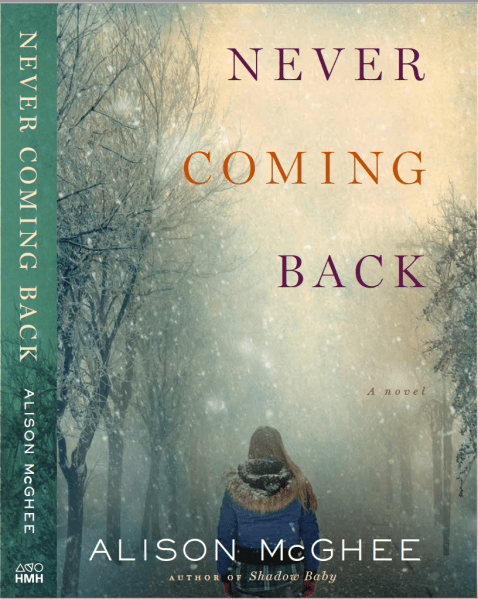 Mama passed, honey. That was the subject line of my friend S’s email to me last week. S had been by the side of the woman who, though not her mother, was close enough to be. S had helped Mama out of this world into whatever comes after. Before work, after work, on weekends, she was with her, a steadying presence full of love and jokes. When Mama told her she was hungry, S would feed her little bites of avocado, apple sauce, ice cream. S was with Mama when she finally said goodbye to the world. Mama was in her 90’s. It was time.
Mama passed, honey. That was the subject line of my friend S’s email to me last week. S had been by the side of the woman who, though not her mother, was close enough to be. S had helped Mama out of this world into whatever comes after. Before work, after work, on weekends, she was with her, a steadying presence full of love and jokes. When Mama told her she was hungry, S would feed her little bites of avocado, apple sauce, ice cream. S was with Mama when she finally said goodbye to the world. Mama was in her 90’s. It was time.
But it’s not always time. I remember the day that the mother of one of my daughter’s best friends died. I hung up the phone and screamed and threw it across the room. So unfair, that this middle-schooler, a girl I adore, should have to live with that loss.
The stars of my new novel, Never Coming Back (my first novel for adults in a long time, forthcoming in October), are Clara Winter and her mother Tamar. Tamar has been diagnosed with early-onset Alzheimer’s, which means that she and Clara are running out of time together. While most of us, if we’re lucky, have decades to resolve our relationships with our parents –the ins and outs, the nuances and realizations and disconnections and reconnections– Clara and Tamar have only months. This small, lovely poem by Anna Marie Sewell makes me think about mothers and daughters, parents and children, my friend S and Mama, and all the ways in which we do or don’t cradle each other.
Nocturne: Tiny Now, by Anna Marie Sewell
She is tiny now, my mother
and jokes in the morning, when
her teeth aren’t in, how she whistles
like a little bird. And i want to reach
back to the nights when
she brought the piglets in
laid them in the woodstove oven
so tiny, but she believed in them
and in that warm cradle, the spark
of life rekindled in them. How
do i cradle her? now
she is so tiny, softly
drawing nearer to
the Western Door.
This poem won’t do it.
This poem is for me
a piglet grown, with
my snout astonished
at discovery, how the power
that built a world for me still
reveals itself, blue
slight, soft, tiny
For more information on Anna Marie Sewell, please click here.


 Sometimes I feel so sad for men. All the unspoken rules. All the ways our culture tries to train boys out of their openness, their gentleness, their human need for hugs and touch. I think of the multiple men I know who have told no one but me the ways they were sexually abused as children. I think of my giant of a father, and the look on his face when he told me how his mother used to scream at him when he was little. I think of all the men I know who depend on the women they love to translate the world of emotion for them, to navigate the nuances of relationships. I think of how sex sometimes seems the only acceptable way for a man to give and receive physical affection, the only time they can let down their guard.
Sometimes I feel so sad for men. All the unspoken rules. All the ways our culture tries to train boys out of their openness, their gentleness, their human need for hugs and touch. I think of the multiple men I know who have told no one but me the ways they were sexually abused as children. I think of my giant of a father, and the look on his face when he told me how his mother used to scream at him when he was little. I think of all the men I know who depend on the women they love to translate the world of emotion for them, to navigate the nuances of relationships. I think of how sex sometimes seems the only acceptable way for a man to give and receive physical affection, the only time they can let down their guard.  Here in the Time of Covid, my younger daughter and I have figured out how to maintain her complicated haircut. She does the back and sides with her electric clippers, and then I take over with my scissors, layering the sweep of black hair we refer to as “the plume” and lock by lock trimming and blending the rest.
Here in the Time of Covid, my younger daughter and I have figured out how to maintain her complicated haircut. She does the back and sides with her electric clippers, and then I take over with my scissors, layering the sweep of black hair we refer to as “the plume” and lock by lock trimming and blending the rest.  From my porch, which is all windows, people walk by in pairs or threes or solo. Some of them stop by my poetry hut and take a poem. Some keep their heads down and never look up. Some are slow and wandery, holding hands and scuffing their feet. Others stare straight ahead and laugh while they chatter to the person on the other end of their earbuds.
From my porch, which is all windows, people walk by in pairs or threes or solo. Some of them stop by my poetry hut and take a poem. Some keep their heads down and never look up. Some are slow and wandery, holding hands and scuffing their feet. Others stare straight ahead and laugh while they chatter to the person on the other end of their earbuds. Relaxation is not my style. My style is more making long daily to-do lists and then crossing items off one by one. Sometimes I can trick myself into relaxing if I turn it into a task and add it to the list —rest and read–which when you think about it is kind of pathetic.
Relaxation is not my style. My style is more making long daily to-do lists and then crossing items off one by one. Sometimes I can trick myself into relaxing if I turn it into a task and add it to the list —rest and read–which when you think about it is kind of pathetic. Twice in my life I’ve started down a road and kept going, even when the road narrowed and turned into thorns, brambles, impenetrable darkness. A symbol of my refusal to accept that I had made the wrong choice in the very beginning. Years later, when I read about the theory of “sunk profits,” which describes a past investment that shouldn’t but still affects your decisions about the future, I knew it was what I had done in those situations. Kept going, because with so much invested, it felt impossible to let go, even though that
Twice in my life I’ve started down a road and kept going, even when the road narrowed and turned into thorns, brambles, impenetrable darkness. A symbol of my refusal to accept that I had made the wrong choice in the very beginning. Years later, when I read about the theory of “sunk profits,” which describes a past investment that shouldn’t but still affects your decisions about the future, I knew it was what I had done in those situations. Kept going, because with so much invested, it felt impossible to let go, even though that Mama passed, honey. That was the subject line of my friend S’s email to me last week. S had been by the side of the woman who, though not her mother, was close enough to be. S had helped Mama out of this world into whatever comes after. Before work, after work, on weekends, she was with her, a steadying presence full of love and jokes. When Mama told her she was hungry, S would feed her little bites of avocado, apple sauce, ice cream. S was with Mama when she finally said goodbye to the world. Mama was in her 90’s. It was time.
Mama passed, honey. That was the subject line of my friend S’s email to me last week. S had been by the side of the woman who, though not her mother, was close enough to be. S had helped Mama out of this world into whatever comes after. Before work, after work, on weekends, she was with her, a steadying presence full of love and jokes. When Mama told her she was hungry, S would feed her little bites of avocado, apple sauce, ice cream. S was with Mama when she finally said goodbye to the world. Mama was in her 90’s. It was time.  I wrote this poem seventeen years ago, after watching one of my daughters standing on a stool at the kitchen sink. A few things have changed in those years: that daughter and her brother and sister have grown up, I’m happy with blonde hair and I’d settle for an eight-minute mile. But everything else still holds. My bargain with the planets remains the same.
I wrote this poem seventeen years ago, after watching one of my daughters standing on a stool at the kitchen sink. A few things have changed in those years: that daughter and her brother and sister have grown up, I’m happy with blonde hair and I’d settle for an eight-minute mile. But everything else still holds. My bargain with the planets remains the same.